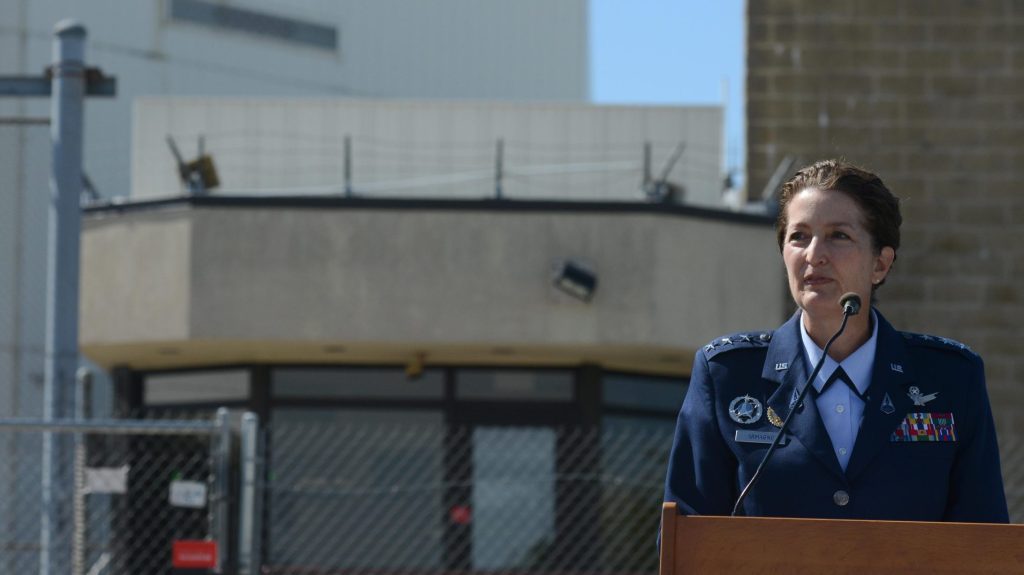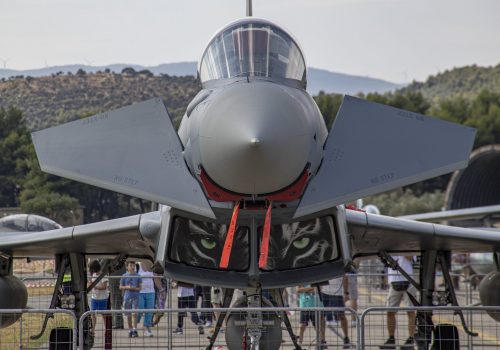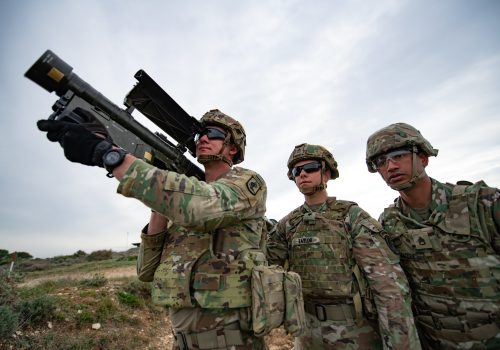As the United States grappled with the aftermath of the death of George Floyd in June 2020, US Space Force Chief of Operations General John Raymond wrote to those serving under him: “We must build diversity and inclusion into our ‘cultural DNA’—make it one of the bedrock strengths of our Service.”
Since then, the nascent branch has taken small steps in the right direction. However, the Space Force—and the space and defense communities at large—must still take a giant leap to fully recognize gender equality, diversity, and inclusion as strategic imperatives to maintain US military leadership abroad.
The Space Force was born in a vastly different atmosphere than its sister services. It is the first American military branch to be established since the Civil Rights Act, which outlawed discrimination on the basis of race, religion, sex, or national origin. Its leadership is now rewriting traditional talent recruitment and retention strategies to match twenty-first century values and new requirements.
Officials across the Space Force, including female leadership up to the three-star level, are pushing for increased female and minority recruits. The Space Force has established several strategic partnerships with universities across the nation to recruit and educate a space workforce. The diversity of the student populace is a factor in the choice of partner schools.
Furthermore, the Department of the Air Force (where the Space Force is nested) has implemented changes to foster inclusion among service members and those on track to join the military, including through scholarships to cadets attending historically black colleges and universities. Diversity, equity, and unconscious bias training are required. The Space Force is also rethinking many of the stringent health, education, and lifestyle requirements that disqualify 70 percent of young Americans from military service, instead investigating qualities most relevant to specific positions without sacrificing job performance.
But the newest branch has also inherited many of the same systemic problems seen across the US military. And while the Air Force was notably the first service to allow women to join all career tracks and outperforms its counterparts in female representation, the department still has a long way to go: Women are underrepresented at senior levels, feel their life balance is unequally and adversely impacted by work, face sexual harassment, sense a negative stigma around pregnancy and maternity leave, and as a result do not trust their chain of command to address inappropriate behavior.
Moreover, the challenge of ensuring diversity in the space domain is bigger than just the Space Force. Gender disparity in science, technology, engineering and mathematics (STEM) is widespread across the globe, with female CEOs representing only 19 percent of leaders in the aerospace and defense industry. Of the more than 560 people who have traveled to space, fewer than 70 have been women—and even fewer have represented minority groups. The National Aeronautics and Space Administration (NASA) sparked controversy in 2019 after changing course on what would have been the International Space Station’s first all-female spacewalk due to a wardrobe mishap: One female astronaut needed a smaller spacesuit, but the agency replaced the astronaut to avoid costly suit production. The incident reinforced the assumption that the prototype astronaut is a man.
One giant leap
Recruiting diverse talent and maintaining a culture of inclusion aren’t just the right things to do; they are mission critical. A unit’s ability to operate a diverse yet cohesive team underlines military readiness (the ability to provide adequate forces to meet national-security priorities) and helps to combat groupthink. In effect, diversity offers a strategic asset at a low cost compared to exquisite weapon systems. Because outer space is ripe for innovation (which benefits from diversity), whichever countries pioneer technological advancements today will become leaders among spacefaring nations tomorrow.
Yet change will only come through signals from the top. While the 2018 National Defense Strategy (NDS) mentions the need for “a motivated, diverse, and highly skilled civilian workforce,” the document fails to comprehensively call for diversity and inclusion across the Department of Defense (DoD). The 2022 NDS must recognize the need to reevaluate practices hampering the recruitment and retention of diverse service members.
The Biden administration’s Space Priorities Framework could be a good launching point, as it emphasizes investment in next-generation leaders in order to reflect a diverse society. Following the release of the forthcoming NDS, the DoD should go a step further and task the Office for Diversity, Equity, and Inclusion under specific deadlines to ensure that this critical effort is realized. Sufficient resources are vital too: The presidential budget request for NASA provides an exemplary start, designating $150 million to broaden STEM participation to diverse and underserved populations. The DoD’s budget could include a similar line item.
It’s important to remember that space rests at the confluence of national and global values and interests. US space programs, including the Space Force and NASA, provide opportunities to showcase American values on the world stage. Canada is notable in this regard: In a 2021 United Nations (UN) General Assembly report on international security in outer space, Canada was the only nation to cite “diversity as a strength,” encouraging the equal participation of women and men in discussions on space security.
The United States, alongside Canada and other like-minded nations, should lead the dialogue on women and minority inclusion in space development. The Space4Women project under the UN Office for Outer Space Affairs promotes women’s empowerment in space and could be a good launching point for such global efforts. The United States could implant members of Space4Women’s network of global space professionals into ongoing domestic and international conversations related to the sector to ensure that diverse perspectives are included and valued in charting the future of this domain.
All of humankind is fascinated by outer space. Outer space should likewise be a domain for all of humankind.
Julia Siegel is a program assistant in the Forward Defense practice of the Atlantic Council’s Scowcroft Center for Strategy and Security.
Further reading
Tue, Feb 8, 2022
US adversaries have been mastering hybrid warfare. It’s time to catch up.
Hybrid Conflict Project By Marc Polymeropoulos, Arun Iyer
Bad actors are embracing hybrid warfare. Time is of the essence for Washington to seize the advantage.
Tue, Feb 1, 2022
The EU’s Strategic Compass is a defining moment for European defense
New Atlanticist By Marie Jourdain
The EU's first white paper on defense will be a barometer for both member states’ and the bloc’s ambitions to make the EU a leading provider of security.
Wed, Apr 20, 2022
The next National Defense Strategy is coming. These seven points are key to understanding it.
New Atlanticist By
Our experts break down what we know so far about the document that will guide the Pentagon's policy making in the coming years, and what burning questions remain.
Image: US Air Force General Nina Armagno is framed by the radar building as she speaks at the Cape Cod Air Force Station which took on the new name of Cape Cod Space Force Station on June 11, 2021. Photo by Steve Heaslip/Cape Cod Times/REUTERS



